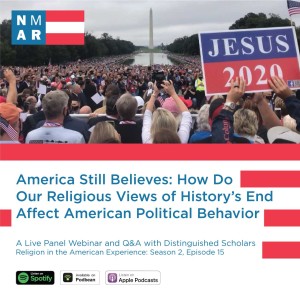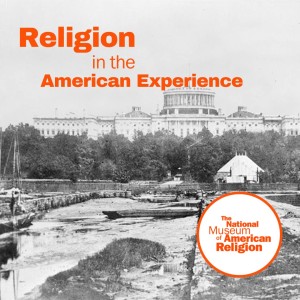
- Podcast Features
-
Monetization
-
Ads Marketplace
Join Ads Marketplace to earn through podcast sponsorships.
-
PodAds
Manage your ads with dynamic ad insertion capability.
-
Apple Podcasts Subscriptions Integration
Monetize with Apple Podcasts Subscriptions via Podbean.
-
Live Streaming
Earn rewards and recurring income from Fan Club membership.
-
Ads Marketplace
- Podbean App
-
Help and Support
-
Help Center
Get the answers and support you need.
-
Podbean Academy
Resources and guides to launch, grow, and monetize podcast.
-
Podbean Blog
Stay updated with the latest podcasting tips and trends.
-
What’s New
Check out our newest and recently released features!
-
Podcasting Smarter
Podcast interviews, best practices, and helpful tips.
-
Help Center
-
Popular Topics
-
How to Start a Podcast
The step-by-step guide to start your own podcast.
-
How to Start a Live Podcast
Create the best live podcast and engage your audience.
-
How to Monetize a Podcast
Tips on making the decision to monetize your podcast.
-
How to Promote Your Podcast
The best ways to get more eyes and ears on your podcast.
-
Podcast Advertising 101
Everything you need to know about podcast advertising.
-
Mobile Podcast Recording Guide
The ultimate guide to recording a podcast on your phone.
-
How to Use Group Recording
Steps to set up and use group recording in the Podbean app.
-
How to Start a Podcast
-
Podcasting
- Podcast Features
-
Monetization
-
Ads Marketplace
Join Ads Marketplace to earn through podcast sponsorships.
-
PodAds
Manage your ads with dynamic ad insertion capability.
-
Apple Podcasts Subscriptions Integration
Monetize with Apple Podcasts Subscriptions via Podbean.
-
Live Streaming
Earn rewards and recurring income from Fan Club membership.
-
Ads Marketplace
- Podbean App
- Advertisers
- Enterprise
- Pricing
-
Resources
-
Help and Support
-
Help Center
Get the answers and support you need.
-
Podbean Academy
Resources and guides to launch, grow, and monetize podcast.
-
Podbean Blog
Stay updated with the latest podcasting tips and trends.
-
What’s New
Check out our newest and recently released features!
-
Podcasting Smarter
Podcast interviews, best practices, and helpful tips.
-
Help Center
-
Popular Topics
-
How to Start a Podcast
The step-by-step guide to start your own podcast.
-
How to Start a Live Podcast
Create the best live podcast and engage your audience.
-
How to Monetize a Podcast
Tips on making the decision to monetize your podcast.
-
How to Promote Your Podcast
The best ways to get more eyes and ears on your podcast.
-
Podcast Advertising 101
Everything you need to know about podcast advertising.
-
Mobile Podcast Recording Guide
The ultimate guide to recording a podcast on your phone.
-
How to Use Group Recording
Steps to set up and use group recording in the Podbean app.
-
How to Start a Podcast
-
Help and Support
- Discover

America Still Believes: How Do Our Religious Views of End Times Affect American Political Behavior?
We have all been part of the recent contentious U.S. presidential election, which finally ended in the transfer of power in January of this year.
At the Museum we observed that, as usual, a colossal amount of energy, money, time, emotion, concern, debate, argument, Tweets, posts, letter-writing, editorializing, and protest were invested in the election and its outcome. America was all in. That is, Americans have a deep and meaningful allegiance to perfecting, preserving and perpetuating the American experiment in self-government. Some religious beliefs even tie into the country’s founding & purpose.
At the same time, however, we also noted that while that patriotic allegiance is powerful, for a large percentage of Americans, perhaps no longer a majority – at least according to a very recent report, there is most likely something that commands a greater allegiance – and that would be their faith. Many faiths have end-times theologies, including Christianity, which believes in an approaching end of the world and the return of Jesus Christ. So, it occurred to us that religious beliefs about the end of the world may play a large but hidden role in our politics – past, present and future.
If we can understand some of the beliefs about the end of the world and their effects on political behavior, we will be better equipped as citizens trying to see to the success of the American project in the 21st century.
Today we have a fantastic panel of scholars who will, in an hour!, help us scrape the surface, maybe do a deep dive or two:
- Matthew Sutton, the Berry Family Distinguished Professor in the Liberal Arts at Washington State and author of American Apocalypse: A History of Modern Evangelicalism
- Matt Harper, Associate Professor of History and Africana Studies at Mercer University and author of End of Days
- Christopher Blythe, Research Associate at Brigham Young University’s Maxwell Institute and author of Terrible Revolution: Latter-day Saints and the American Apocalypse
- Arlene Sanchez-Walsh, Professor of Religious Studies at Azusa Pacific University and author of Latino Pentecostal Identity: Evangelical Faith, Self, and Society
- Jacqueline Keeler, writer and activist of Dineh and Yankton Dakota heritage, co-founder of Eradicating Offensive Native Mascotry (EONM), and author Standoff: Standing Rock, the Bundy Movement, and the American Story of Occupation, Sovereignty and the Fight for Sacred Lands
- Larry Perry, Assistant Professor of Religious Studies and Africana Studies at the University of Tennessee, Knoxville; currently working on a book entitled A Black Spiritual Leftist: Howard Thurman and the Religious Left’s Unfinished Business of Race Relations
- William Dinges, Ordinary Professor of Religion and Culture at The Catholic University of America and co-author of Young Adult Catholics: Religion in the Culture of Choice
More Episodes
 2026-02-23
2026-02-23
 81
81
 2026-02-10
2026-02-10
 109
109
 2026-01-26
2026-01-26
 112
112
 2025-12-30
2025-12-30
 152
152
 2025-11-25
2025-11-25
 108
108
 2025-10-24
2025-10-24
 148
148
 2025-10-06
2025-10-06
 149
149
 2025-09-24
2025-09-24
 154
154
 2025-08-25
2025-08-25
 157
157
 2025-07-24
2025-07-24
 150
150
 2025-05-16
2025-05-16
 129
129
 2025-05-05
2025-05-05
 174
174
 2025-04-11
2025-04-11
 149
149
 2025-03-07
2025-03-07
 200
200
Create your
podcast in
minutes
- Full-featured podcast site
- Unlimited storage and bandwidth
- Comprehensive podcast stats
- Distribute to Apple Podcasts, Spotify, and more
- Make money with your podcast
It is Free
- Privacy Policy
- Cookie Policy
- Terms of Use
- Consent Preferences
- Copyright © 2015-2026 Podbean.com




